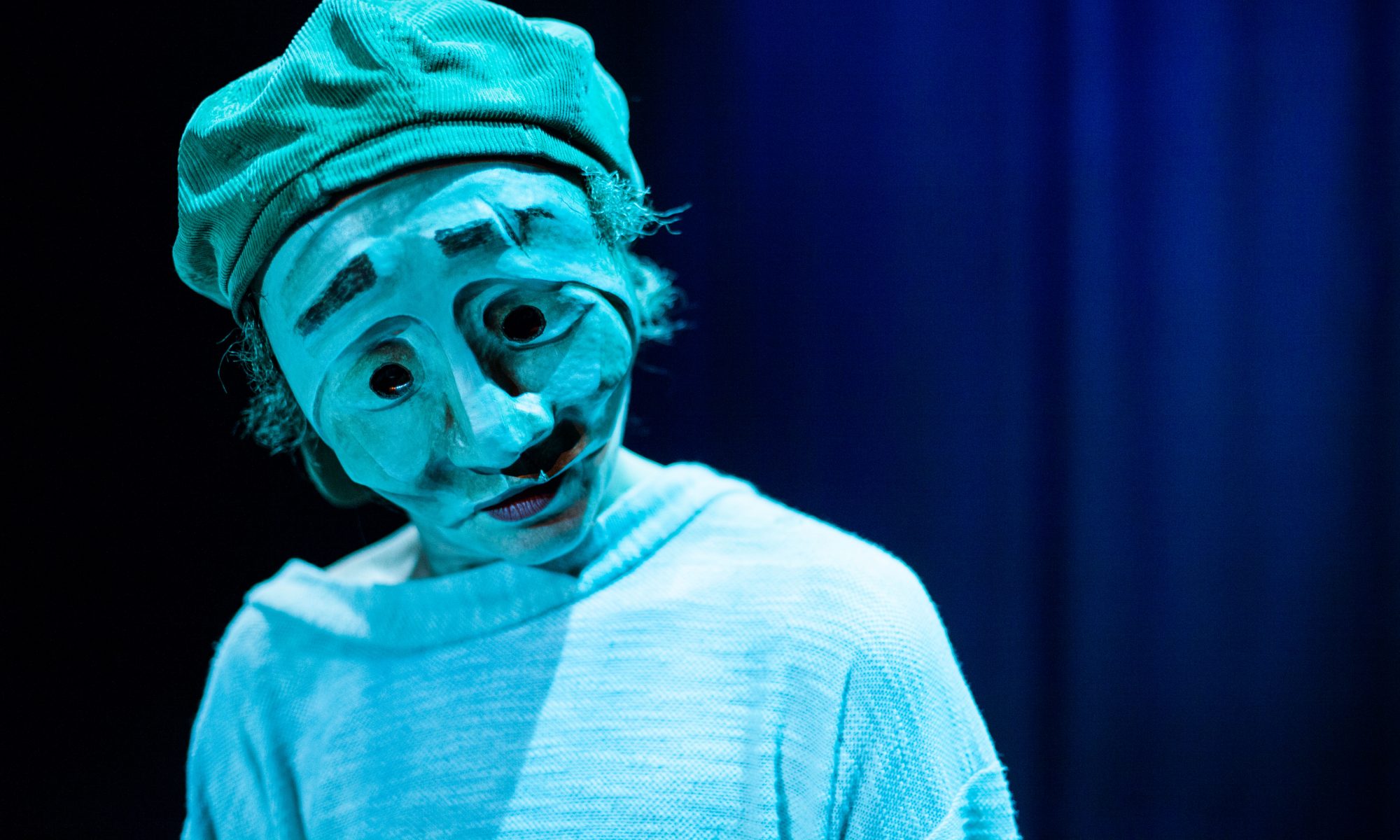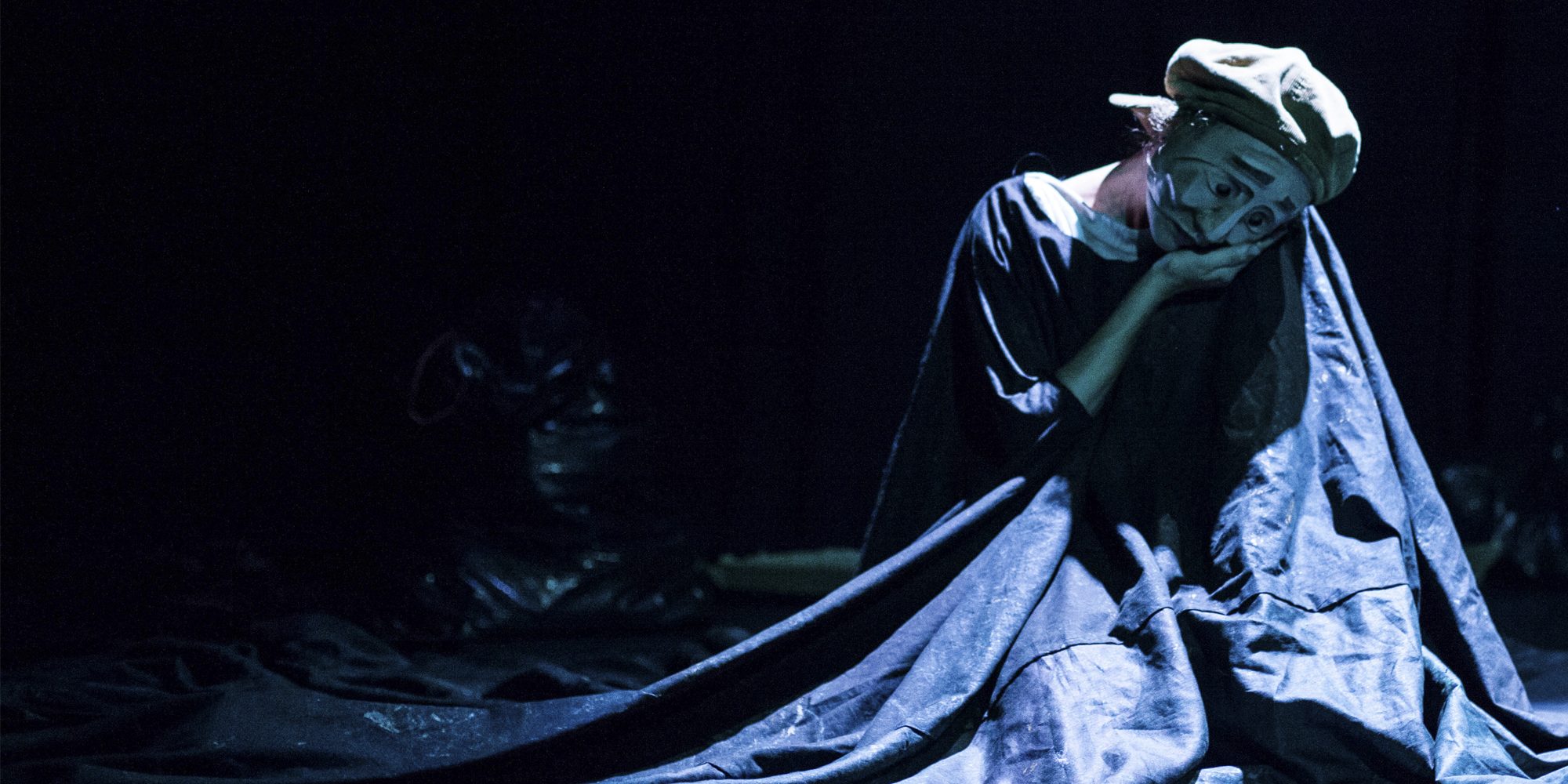All that occurs in “BETÚN” has been told to us by street children.
BETÚN: A journey along a path marked by thousands of tiny steps, anonymous traces of small bare feet, a silent song to man’s conscience, a cry without tears or sighs, a group of children united by abandonment, a house made out of cardboard not chocolate, a dream that cracks like the asphalt on neglected streets, a society of lonely individuals each fearing the other, a game of hide and seek in the gutters, a never-ending fall into the void, a child that wants to be a superhero, so far they have become invisible, nobody looks at this child anymore. But who can tell he’s there? Betún is part of the landscape, so present, so constant that no one notices him, no one sees him.
This show features a modern story, a fable of our times that could start with “Once upon a time there was a street…” So our hero is not exactly a hero, he’s smaller, let’s say he’s the quarter of a hero, and as in all time-told fables there are many ugly and wrong things, bad things… Betún lives, dreams, works, sleeps and plays in the street; the road is his comfort blanket and the pavement is his living room. His story is the colour of his home, his life; a dark fable of dreams and realities. That’s why this show isn’t divided into acts or scenes, but instead into 4 dreams and 5 realities that show us the journey into hell of a child condemned to the street.
Betún is a brief theatrical poetry performance about a stark and disconcerting reality that oppresses too many children in the world. With this show, Teatro Strappato wants to give people the opportunity to discover this unforgiving concrete jungle that threatens millions of children.
THEATRICAL ART
The prop that best characterises Teatro Strappato performances is the mask, allowing the actor to speak directly to the audience’s conscience and heart. In the deep fiction surrounding the mask there lies the profound reality of what connects us. Betún is a show where the mask allows the audience to immediately identify with the characters on the stage and creates a language that requires no words. Betún is a show full of sounds and noises, but without a word, because the story it tells is not a story that can be spoken; it is a story of things that just happen when you’re born on the unfortunate side.
THEATRE AS A SOCIAL ACTOR
The Polish sociologist Zygmunt Bauman defines the society of our time as liquid, constantly changing both in form and in content. This change is understandable only through constant dialogue between reality and the interpretation of this. A living dialogue, always alert, liquid, like a theatre play that each night is born and develops before the audience, unable to be indifferent to what happens outside the theatre. Our company advocates contemporary theatre in the sense of being useful and necessary for its peers. Above all things, theatre entails the communication of information, feelings, dreams and nightmares, a bridge between human beings which manages, on this overpopulated planet, to put the audience into the shoes of an anonymous defenceless child from the periphery of the world. Making him a friend and understanding his drama. Theatre has the responsibility and obligation to help human beings to meet one another despite distances; theatre must be an actor with a social link, and it is with this spirit and this hope that the curtain of a contemporary theatre should, in the broadest sense of the word, open.
THE STREET KIDS
THE BOLIVIA INVESTIGATION
In January 2016, after several months of bibliographical research, the members of Teatro Strappato made a month-long trip through Bolivia, in order to carry out fieldwork with street children, which gave fruit in the form of the show “Betún”.
The situation of street children at the global level is difficult to diagnose, it is a discarded childhood, ignored, abandoned by their families and the world. These children are united in scandalous figures that fluctuate between one hundred and one hundred and fifty million, depending on the organisation that contributes the data. In this way these individuals become a number, a statistic without identity, ready to be published and forgotten in the inflated information market. We also know that about forty per cent of these abandoned children wander the streets of Latin America. The morphology of the problem varies according to the region and we have decided to focus on the Latin American case in which, with different levels of severity depending on the country, the detonators of this situation result mainly in the immense disfunctionality within the family structure, accompanied by critical cases of alcoholism and domestic violence.
With this research Teatro Strappato intends to create a responsible show on this subject, a show capable of sensitising and informing the public about this tragic reality that the children of our species and our childhood live, that, before having a nationality or a cultural identity, are human beings who deserve their rights to be protected by all others.
The world is divided between idyllic bubbles and threatening depths in which the inhabitants of each of these two dimensions cannot imagine what the world is like outside their own reality. “Betún” dreams of being a bridge between these two worlds, a bridge to know what otherwise would be simply distant and unimaginable, and make it it’s own.
A key point of support for the investigation was the Centro Tiquipaya Wasi in the city of Cochabamba, as we had the opportunity to coexist for a period with young people who had lived in homeless situations. With them we held a theatre workshop through which we were able to learn more about their life stories. The work in Bolivia was composed of data collection, observations and interviews with both street children and professionals working with this population. After the collaboration with the reception Centre Tiquipaya Wasi, a small project of Teatro Strappato emerges to help raise funds for the Centre’s self-supply. It is a small collaboration thanks to public contributions, a grain of sand in a desert, but do not forget that without any grain of sand there would be no desert. In this way we try to make the public aware of the importance of even the smallest gestures, no matter how small it may seem to this immense problem, since the reality is composed of great dramas that are attenuated by small gestures.
ABOUT THE AUTHOR
Vene Vieitez started out in 2005 with his first theatrical text, “Cuando volver no existe” (When going back is impossible), a play focussing on social issues, thus creating a bridge between his training in sociology and drama. Over time he developed an equally analytical and ironic style that he consolidated with the works of Teatro Strappato, a company he founded in 2011 together with Cecilia Scrittore and where he now leads its two lines of research.
Teatro Strappato on one hand works on a new language, which seeks out the current expressive possibilities of masks on stage, and on the other hand upholds a curious gaze into the past, carrying out research into human archetypes in the history of theatre and the use of the mask as a tool for identifying these very archetypes. As the mask is central to both the historical and experimental research work of Teatro Strappato, Cecilia Scrittore and Vene Vieitez are also involved in the design and development of these leather face pieces.

